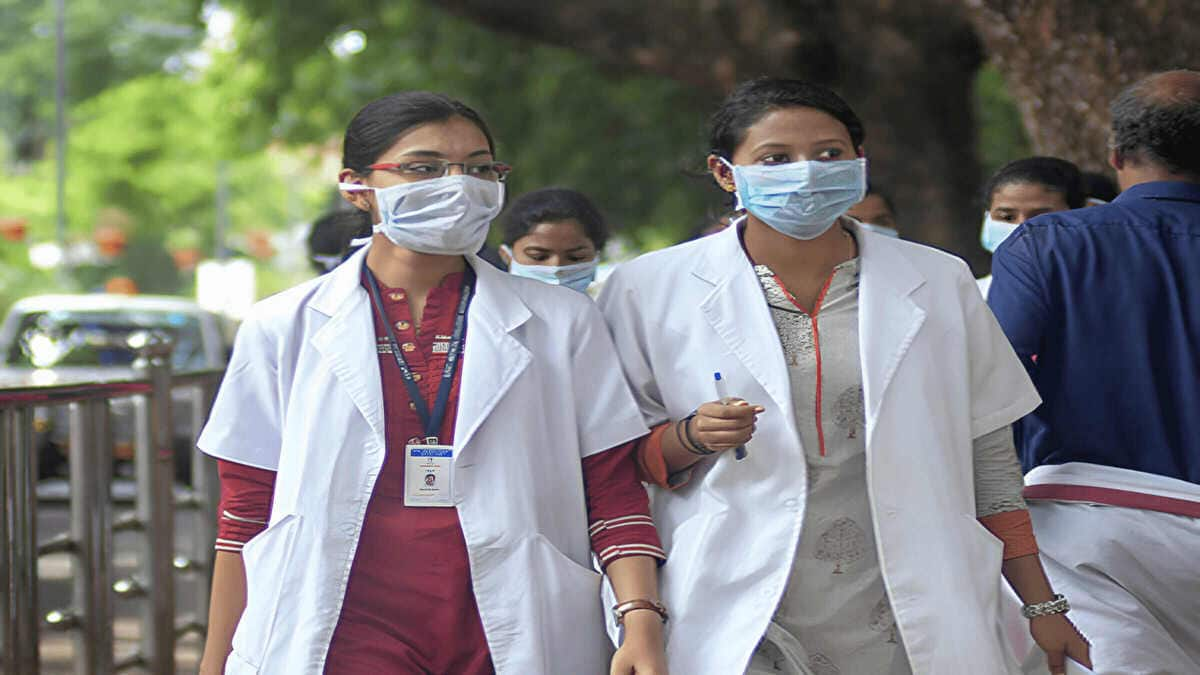The Federation of All India Medical Associations (FAIMA) has initiated a nationwide survey to document issues within India's medical education system, particularly focusing on infrastructure deficiencies, inadequate patient exposure, and faculty shortages.
This move comes in response to the National Medical Commission's (NMC) recent approvals for new medical colleges that are still under construction and lack essential facilities.
The union cabinet recently approved the expansion of medical seats under the Phase III Centrally Sponsored Scheme (CSS). The move will increase 5,023 Bachelor of Medicine and Bachelor of Surgery (MBBS) seats and 5,000 postgraduate (PG) medical seats in existing state and central government medical colleges, as well as standalone PG institutes.
Survey aims to assess college readiness
The survey circulated via a Google form, aims to gauge whether medical colleges are equipped to handle the increased number of seats, seeking feedback from students and resident doctors on the adequacy of existing facilities.
The form collects information on faculty availability, infrastructure, clinical exposure, research support, hostel facilities, mental health support, and other academic and non-academic aspects.
It includes separate sections for UG, PG students, as well as questions common to all respondents, aiming to capture real-world issues and gauge how the rapid expansion of medical seats impacts the quality of education and training.
FAIMA raises concerns over NMC approvals
“NMC is granting permissions to colleges still under construction, without proper infrastructure-while simultaneously increasing UG & PG seats. This compromises the future of healthcare and the quality of doctors India produces,” the FAIMA said.
FAIMA officials also expressed concern that infrastructure, faculty availability, and hostel facilities are not keeping pace with the rapid increase in seats. According to a Hindustan Times report, Akshay Dongardive, FAIMA national president, said: “The government is focused on increasing numbers. But unless facilities are scaled up, the quality of medical education and patient care will only decline.”
Dongardive further said that as of Monday afternoon, FAIMA reported receiving around 1,500 responses, which will be compiled and shared with the Union Health Ministry, state authorities, and the Directorate of Medical Education and Drugs.
Mentorship challenges for PG students
Highlighting the gap between student intake and resources, FAIMA general secretary Swapnil Kendre noted that even existing facilities struggle to meet current demands. Shortages in operational machinery, ICUs, and diagnostic equipment, coupled with limited mentorship opportunities for PG students, pose significant challenges.
“Guides are sometimes allotted only on paper. Many colleges do not have senior doctors to supervise. In some cases, professors from major centres are sent temporarily, but this is hardly enough. For PG training, mentorship is crucial; students cannot fulfil criteria like seminars, conferences, and research without it. This directly affects their career progression and even eligibility for exams,” Kendre told Hindustan Times.